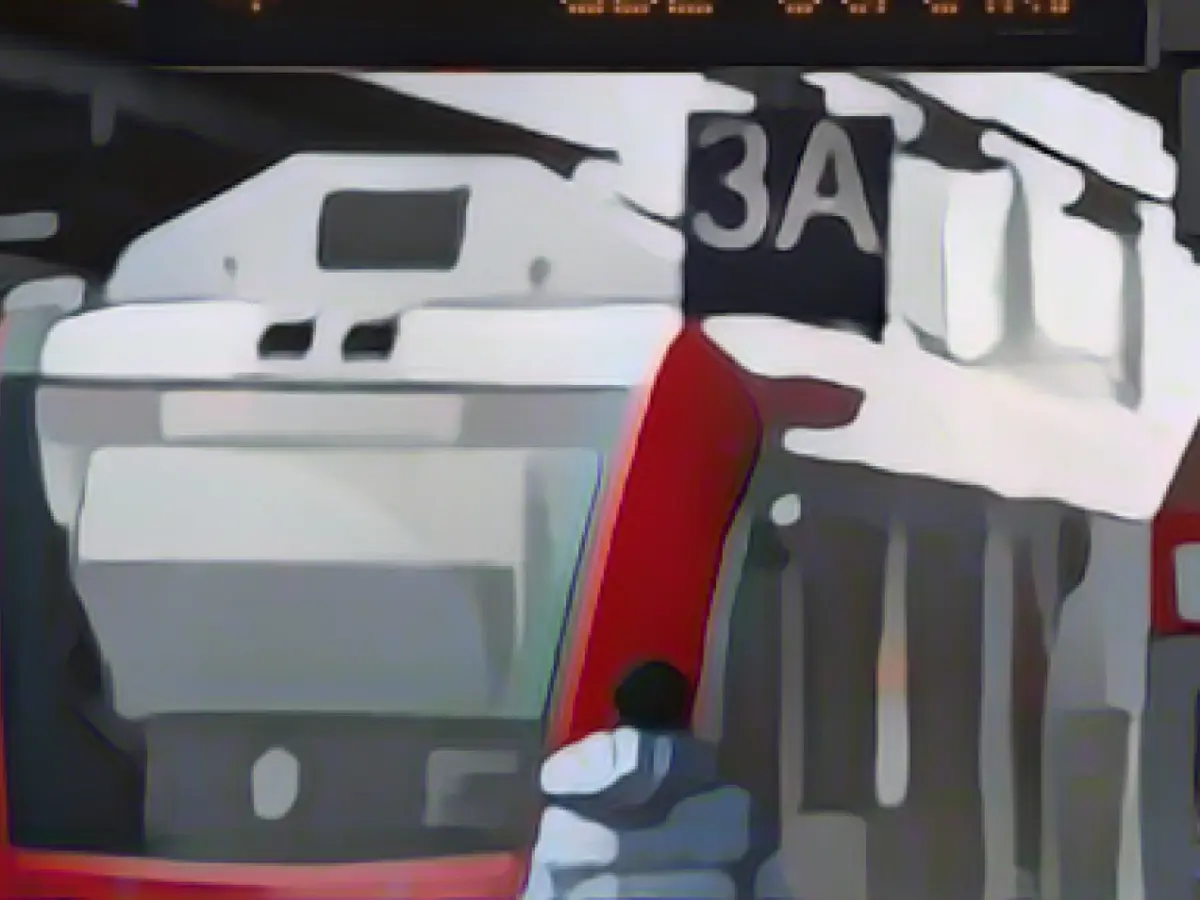Traffic - GDL members vote in favor of indefinite strikes at Deutsche Bahn
Deutsche Bahn is facing the threat of strikes lasting several days next year with thousands of train cancellations. The members of the train drivers' union GDL have cleared the way for indefinite industrial action in a ballot, as GDL boss Claus Weselsky announced in Frankfurt am Main on Tuesday. 97 percent of the voting members were in favor of this.
"Overall, our colleagues have sent a clear signal," said Weselsky on the result. 75 percent approval was required for indefinite strikes. According to Weselsky, the turnout was more than 70 percent.
The union had recently promised not to call for industrial action up to and including January 7 - after that, however, the vote gives Weselsky and his members the opportunity to strike on the railroads for days on end. "What comes next will be stronger, longer and tougher for customers," announced the union leader in comparison to the previous warning strikes.
Hardened fronts on the issue of working hours
The GDL and Deutsche Bahn have only been negotiating in the current wage dispute since the beginning of November, but have quickly become entangled. After the second round, Weselsky declared the negotiations to have failed and subsequently initiated a ballot of GDL members.
A central sticking point in the conflict is the reduction in weekly working hours for shift workers on full pay demanded by the GDL. The union wants a reduction from 38 to 35 hours. Deutsche Bahn considers this to be unachievable, partly due to the shortage of skilled workers. The union is also demanding, among other things, an increase of 555 euros per month as well as a tax and duty-free inflation compensation bonus. Among other things, Deutsche Bahn has already held out the prospect of an eleven percent increase - albeit for a period of 32 months.
Longest GDL strike in passenger transport lasted 127 hours
Following a strike ballot, strikes no longer have to be limited in time as a matter of principle. "We are so responsible that we will not strike forever," said Weselsky recently. However, further 24-hour strikes will not be enough.
In previous collective bargaining rounds, strikes lasting several days were not uncommon. The longest GDL strike at Deutsche Bahn to date took place in May 2015 with 127 hours (5 days plus 7 hours) in passenger transport and 138 strike hours (5 days plus 18 hours) in freight transport. At that time, however, it was already the eighth strike since the start of the wage dispute. In 2021, the GDL struck for around five days.
Ballots are required for longer strikes, as this is the only way to ensure that a broad majority of members support the union leadership's strategy. For the employees, every day of strike action means a loss of income. Trade unions do compensate for the loss of wages and salaries from the strike fund, but usually not in full. The employees therefore give the signal by ballot that they are prepared to make this financial sacrifice.
Two warning strikes already
In the current wage dispute, the union has twice brought most trains to a standstill with 20 and 24-hour warning strikes in passenger transport. Together with the industrial action by the railroad and transport union EVG, there have been four warning strikes on the railways this year.
Read also:
- Why there is still no EU funding for green Saar steel
- 3 billion Saar Fund is unconstitutional
- Abrupt end to e-car subsidies
- The chemical industry has little confidence
- The ongoing dispute between Deutsche Bahn and the GDL trade union has resulted in failed negotiations and the union's announcement of potential indefinite strikes, as revealed by Claus Weselsky in Frankfurt on Main.
- If the strikes materialize, they could last for several days, causing significant disruptions and thousands of train cancellations, according to Weselsky's warning.
- The train drivers' union GDL has gained support for these strikes, with 97% of voting members favoring indefinite action, which requires 75% approval.
- Claus Weselsky emphasized that the high turnout of more than 70% shows the strong support behind the union's decision to strike.
- The current conflict revolves around the GDL's demand for reduced weekly working hours for shift workers, from 38 to 35 hours, which Deutsche Bahn views as unattainable due to the skilled labor shortage.
- Deutsche Bahn has proposed a surer option of offering an 11% increase over a 32-month period in contrast to the union's demand for a 555 euros monthly hike and an inflation compensation bonus.
- Recent strikes by the GDL and EVG railroad and transport union have resulted in several days of cancellations, with the longest strike in Deutsche Bahn's history lasting 127 hours in May 2015.
- Ballots are mandatory for longer strikes to ensure that the majority of members approve of the union's strategic choice and are ready to experience the financial burden of ongoing strikes.
Source: www.stern.de








